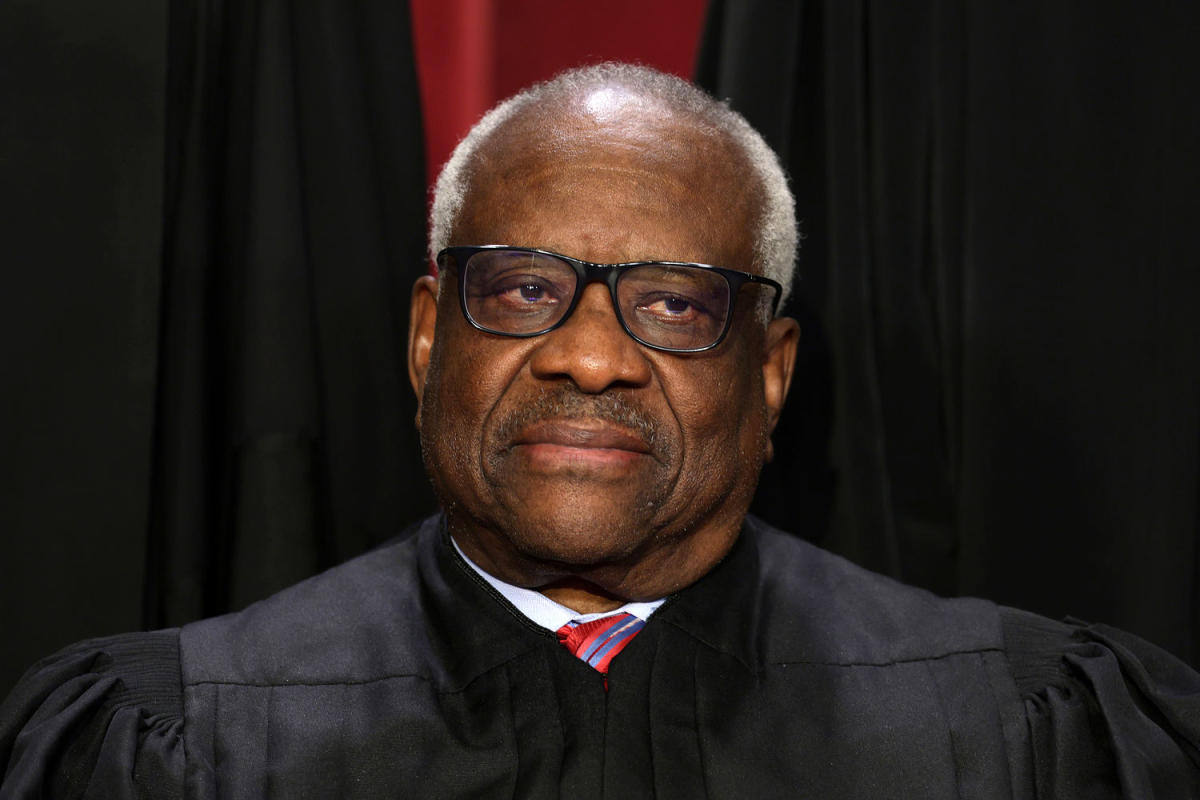Many things about Donald Trump’s Supreme Court immunity appeal are incredible (in a bad way).
There’s the alleged scheme that prompted the election subversion charges at issue. There’s the former president’s equally subversive bid to avoid those charges. There’s the high court’s leisurely scheduling of the appeal, which could function as its own form of immunity by preventing a pre-election trial.
The list goes on.
But when the justices take the bench Thursday morning for their last scheduled hearing of the term, another incredible (in a bad way) feature of the case will be impossible to ignore: Clarence Thomas’ participation.
The GOP appointee has ignored calls to recuse himself from Jan. 6-related cases, even though his wife, Ginni, backed efforts to overturn Trump’s 2020 election loss. Notably, Thomas did recuse himself from a rejected petition by MAGA lawyer John Eastman at the beginning of the term in October, though he didn’t explain his rationale for doing so. I have made the modest suggestion that he should at least explain his non-recusal in these matters, but the justice has not taken me up on that idea.
Indeed, we saw quite recently that Thomas has no intention of sitting out these cases. At last week’s hearing in another Jan. 6 appeal, he pressed the federal government on its prosecutions of rioters, suggesting that they’re unfair. Given his personal connection to the insurrection and its aftermath, Thomas’ involvement in Trump’s immunity appeal is even further troubling, due partly to the presently unknown behind-the-scenes moves that led the court to take up the appeal at all back in February and then not hear it argued sooner. The case has been on hold pending the high court’s review.
Trump has pleaded not guilty to the federal election interference charges at issue in Thursday’s hearing, just as he has done in his three other criminal cases. His New York criminal trial, the first ever against a former U.S. president, is set to continue Thursday as the immunity hearing unfolds in Washington.
There are many unknowns heading into the hearing. Among them are how exactly the justices will rule and, with the looming election whose result could lead to a President Trump crushing this very case, the likewise crucial question of when they’ll rule.
What’s clear is that Thomas’ participation casts an even shadier light over the dispute that’s already far from the court’s greatest moment, no matter how flowery an ode to the rule of law it crafts in Trump v. United States.
Subscribe to the Deadline: Legal Newsletter for weekly updates on the top legal stories, including news from the Supreme Court, the Donald Trump cases and more.
This article was originally published on MSNBC.com
